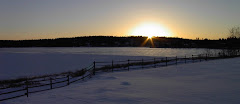The Conference Board of Canada has looked out to 2035 to see what demand there could be for more professional sports teams in Canada.
The report found seven possible new locations for CFL teams, but I think there are more than that possible.
In BC I think there is a case to be made for two to three more teams
1) Surrey - a second lower mainland franchise but south of the river
2) Abbotsford - with Chilliwack this represents a population of 262,500
3) Kelowna - from Penticton to Vernon there are 280,750 people in the Okanagan Valley
I am not convinced that Victoria would support a team.
The report says there are enough people for a team in Saskatoon, but is this really the case? The Roughriders are a Saskatchewan team.
In Ontario the report suggests there is enough demand in London and Kitchner/Waterloo, but I think there is enough demand to add two more teams in the GTA and one in the St Catherines area for eight teams in Ontario.
In Quebec the obvious location is Quebec City but there should be enough demand to add two teams around Montreal.
In the Maritimes they suggest Moncton and Halifax but I can only see a team in Halifax.
So if one adds these teams you end up with a league of 18-22 teams which could be four divisions
CFL EAST
Quebec East
Quebec City
Halifax
Montreal Argos
Laval
Ottawa
Ontario
Hamilton
Toronto Argos
Kitchener/Waterloo
Scarborough
London
CFL WEST
Prairies
Winnipeg
Saskatoon
Regina
Calgary
Edmonton
BC
Okanagan Valley
Abbotsford
Surrey
Vancouver
Victoria
You would play teams in your division twice, the other conference teams once and teams in one of the other conference divisions which would alternate from year to year. This would be an 18 game season, the same as now. The total number of games would go from 72 nationwide to 180 games. This would take total attendance from just under 2,000,000 to just under 5,000,000
Let us say to you went to a schedule of 36 games - in your division four times, your conference twice and the over conference once. This can be achieved by playing two games per week, one on the weekend and one mid week. This would boost the total annual attendance to just under 10,000,000 a year. Each team would sell twice as many tickets but without large cost increases and some reduced costs.
At the moment a typical CFL team take in about $14,000,000 in ticket sales, with more games this would rise to $28,000,000. By comparison, a Canadian NHL team will in $60,000,000 to $80,000,000 in ticket sales.
One of the benefits would be a better travel schedule. This would save the teams money. Some teams would still have to travel more than others such as Halifax, but if the league averaged out the travel expenses over the whole league the costs per year should be lower.
Another benefit would be more rivalries of nearby towns. In Vancouver, Toronto and Montreal it would mean a game in town every week. This would increase attendance and media coverage.









 I am not sure anyone else has ever put on a coin something depicting the defeat of the US. This year Canada as released a $2 coin with the HMS Shannon on it. I suspect when some US nutbar right wing talk show notices he is going to scream for blood, demand a boycott of Canada etc....
I am not sure anyone else has ever put on a coin something depicting the defeat of the US. This year Canada as released a $2 coin with the HMS Shannon on it. I suspect when some US nutbar right wing talk show notices he is going to scream for blood, demand a boycott of Canada etc....